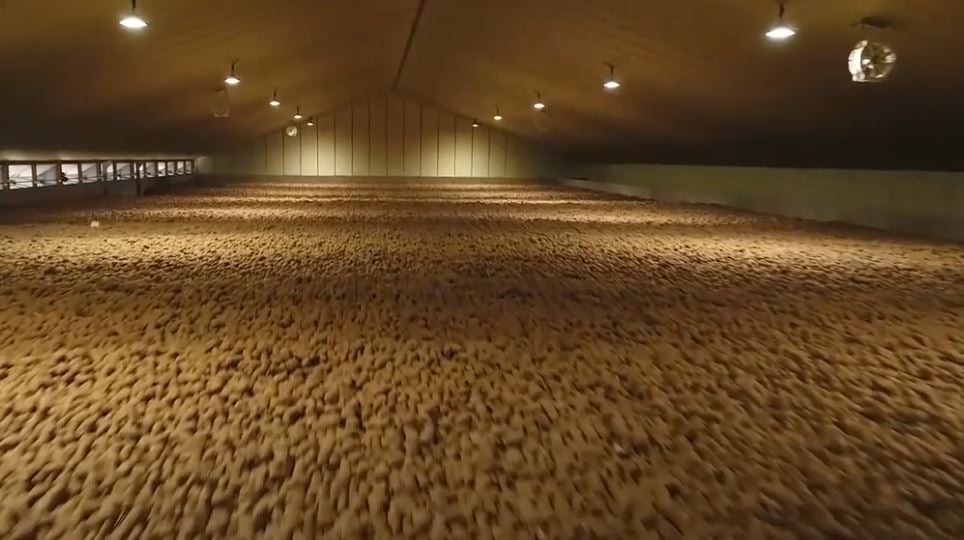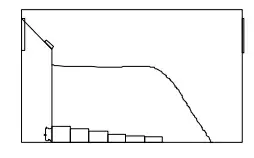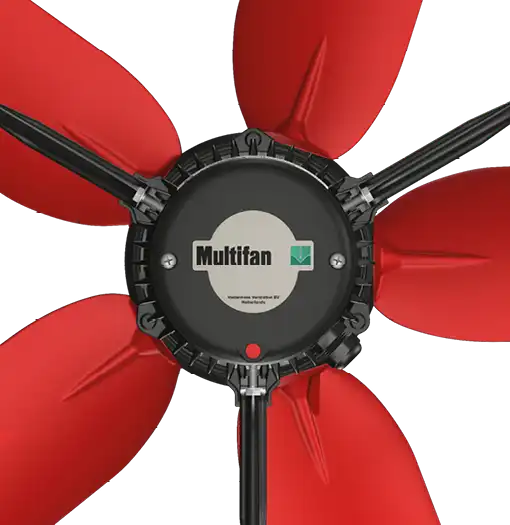When storing potatoes, ensuring proper air movement is essential to maintain the quality of the potatoes for the maximum duration. Managing moisture levels and temperature from the moment the harvest is placed into storage is crucial. By doing so, the supply of potatoes can be extended for a longer period between harvests. In this article, we will delve deeper into the significance of circulation and ventilation in potato storage facilities. We will also explore the use of different types of fans and their roles in maintaining optimal storage conditions. This comprehensive understanding will help in preserving the quality of potatoes for extended periods.
Challenges in Potato Preservation
The preservation process holds two core challenges:
- Preventing weight loss
- Preventing sprouting
Preventing Weight Loss in Potatoes
Potatoes lose a significant amount of moisture through a process known as "respiration." During respiration, potatoes absorb oxygen, leading to the conversion of sugars into water and carbon dioxide (CO2). This process also releases heat. By maintaining the correct temperature during storage, the rate of respiration can be slowed down, thereby reducing moisture loss and preserving the quality of the potatoes for a longer period. Proper temperature control is essential to slowing down this natural process, which in turn helps to extend the shelf life and maintain the overall quality of the stored potatoes.
“Potato respiration is at its lowest between 4 and 8°C. Their respiration intensity increases sharply starting from 15°C and at temperatures below 4°C. Particularly in well-insulated storages (low oxygen), increased respiration can lead to CO2 accumulation and internal black discoloration. An excessively high CO2 content leads to sprouting...”
Source: Potato storage: construction and storage process
The Importance of Ventilation as a Sprout Inhibitor
In addition to limiting moisture loss, it is crucial to keep the potatoes in dormancy for as long as possible. The rate at which potatoes begin to sprout is influenced by several factors, including the temperature during the growing season, the conditions in the storage facility, and the specific type of potato. Modern potato storages employ advanced circulation and ventilation technologies tailored to the crop's needs. These systems help maintain the ideal storage environment by managing temperature, humidity, and airflow, extending the dormancy period and preserving quality.

The Use of High-Pressure Fans in Potato Storages
Ventilation in potato storages is based on 100 m3 of air per m3 of potatoes (edepot.wur). Potatoes stored in bulk or boxes require air ducts to dry the potatoes at the bottom of the pile. Due to resistance, the pressure can rise to 150 Pascal, necessitating fans with a higher pressure range. In the example below, potato fans are connected to the air duct and the space above the potatoes, using a chimney for air circulation.

Source: edepot.wur
The Use of Circulation Fans in Potato Storages
Circulation fans are installed to increase airflow speed at the top of the storage. Mounted along the ceiling's length, these fans enhance air circulation, aiding the drying and cooling process.
.jpg)
Cleaning Potato Storages of Chlorpropham (CIPC)
Chlorpropham, a chemical sprout inhibitor, was commonly used but has recently been banned in Europe. As of 2021, the allowable quantity has been reduced drastically. Storage facilities with persistent CIPC residues may require thorough cleaning and temporary alternative storage to prevent contamination of new harvests.
(Mobile) Circulation Fans
Without Chlorpropham and standard ventilation systems, growers face challenges in maintaining optimal storage conditions. Mobile and horizontal circulation fans offer a temporary solution, providing sufficient air movement and enabling drying in various settings.
For emergency solutions in drying or cooling, explore our circulation fans or talk to one of our specialists. We’re happy to assist!


